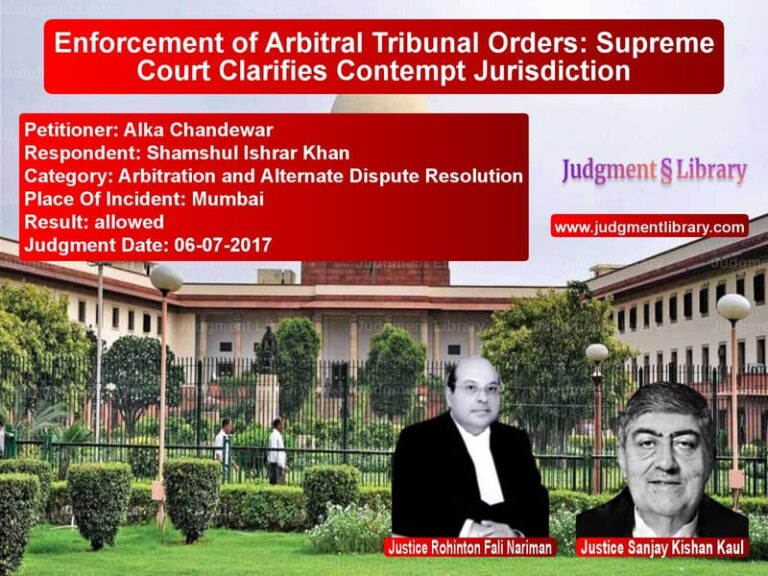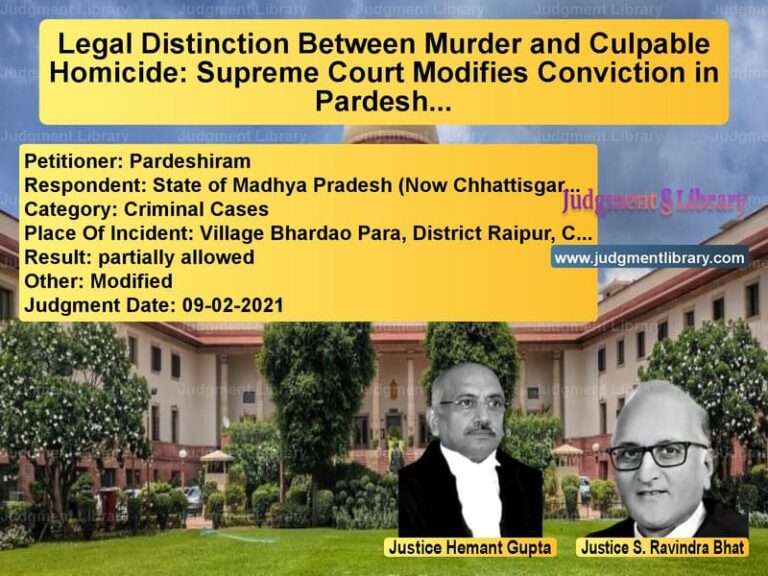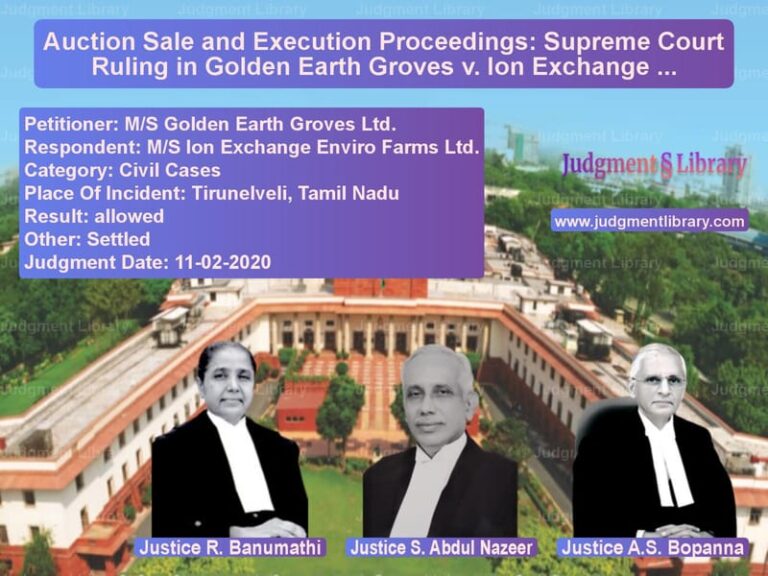Supreme Court Holds Landowners Liable for Builder’s Failure in Joint Venture Project
The Supreme Court of India has ruled in Akshay & Anr. vs. Aditya & Ors., holding landowners responsible for delays in delivering homes in a joint venture project with a developer. The ruling ensures that both landowners and developers are jointly accountable to homebuyers under consumer protection laws.
The decision upholds the orders of the Maharashtra State Consumer Disputes Redressal Commission and the National Consumer Disputes Redressal Commission (NCDRC), directing the landowners and the builder to complete construction, deliver possession to homebuyers, and compensate them for delays.
Background of the Case
The dispute arose from an agreement between the appellants (landowners) and Glandstone Mahaveer Infrastructure Pvt. Ltd. (developer) for a residential project. Key facts of the case include:
- 2013: The landowners entered into a Joint Venture Agreement (JVA) with the builder.
- The landowners executed an Irrevocable Power of Attorney in favor of the builder.
- The builder pre-sold multiple housing units based on the agreement.
- 2015: Homebuyers filed complaints with the Maharashtra State Consumer Commission after facing indefinite delays.
- The State Commission ruled in favor of the homebuyers, ordering the landowners and the builder to complete the project and deliver the homes.
- The landowners challenged the ruling before the NCDRC, which upheld the order.
- 2024: The Supreme Court rejected the landowners’ appeal and confirmed their joint liability.
Legal Issues Considered
The Supreme Court examined the following legal questions:
- Were the landowners legally bound by agreements made by the builder under the JVA?
- Did revoking the Power of Attorney absolve them of liability?
- Should landowners and developers be jointly responsible for delays?
Arguments by the Appellants (Landowners)
The landowners, represented by Senior Counsel Kailash Vasdev, argued:
- They had revoked the Power of Attorney on August 12, 2014, before the builder defaulted.
- The builder acted independently, and they were not involved in selling homes.
- They received no money from homebuyers and should not be held liable.
- The case should not be covered under the Consumer Protection Act.
Arguments by the Respondents (Homebuyers and Developer)
The homebuyers and the builder, represented by Senior Counsel Siddhartha Dave, countered:
- The JVA and Power of Attorney gave the builder the right to sell units.
- The landowners benefited financially and cannot disassociate from the project.
- The Power of Attorney was revoked after the builder had already signed agreements with homebuyers.
- The revocation did not affect the builder’s prior obligations.
Supreme Court’s Observations
1. Landowners Are Bound by the Joint Venture Agreement
The Court ruled that the landowners cannot escape liability:
“The landowners willingly entered into a JVA and granted the developer full rights over the project. They must now share responsibility for delays.”
2. Revoking the Power of Attorney Did Not Cancel Prior Commitments
The Court held that revocation does not affect agreements made before its withdrawal:
“The revocation of the Power of Attorney does not absolve the landowners of liabilities incurred before its withdrawal.”
3. Consumer Protection Laws Apply to Both Landowners and Developers
The Court reaffirmed that homebuyers have rights against all parties involved in construction delays:
“Homebuyers cannot be left without a remedy simply because of an internal dispute between landowners and developers.”
Final Judgment
The Supreme Court ruled:
- The landowners and the builder are jointly and severally liable for project completion.
- The units must be delivered within six months from the judgment date.
- Homebuyers must pay the remaining consideration only upon completion.
- Each homebuyer is entitled to Rs. 1 lakh in compensation for delays.
- Failure to comply will attract an interest penalty of 9% per annum.
Implications of the Judgment
This ruling has significant implications for real estate law:
- Ensures Accountability: Landowners and developers must take equal responsibility for project delays.
- Protects Homebuyers: Ensures that buyers can seek compensation under consumer laws.
- Sets a Precedent for Joint Ventures: Courts will scrutinize JVA agreements when determining liability.
- Encourages Fair Practices: Landowners cannot transfer rights to a developer and then deny responsibility.
The Supreme Court’s decision in Akshay & Anr. vs. Aditya & Ors. strengthens consumer protection in real estate transactions and ensures that landowners and developers are held accountable for their commitments.
Read also: https://judgmentlibrary.com/equitable-mortgage-and-delay-in-justice-supreme-courts-landmark-ruling/
Petitioner Name: Akshay & Anr..Respondent Name: Aditya & Ors..Judgment By: Justice Bela M. Trivedi, Justice Satish Chandra Sharma.Place Of Incident: Nagpur, Maharashtra.Judgment Date: 28-08-2024.
Don’t miss out on the full details! Download the complete judgment in PDF format below and gain valuable insights instantly!
Download Judgment: akshay-&-anr.-vs-aditya-&-ors.-supreme-court-of-india-judgment-dated-28-08-2024.pdf
Directly Download Judgment: Directly download this Judgment
See all petitions in Property Disputes
See all petitions in Contract Disputes
See all petitions in Consumer Rights
See all petitions in Judgment by Bela M. Trivedi
See all petitions in Judgment by Satish Chandra Sharma
See all petitions in dismissed
See all petitions in Quashed
See all petitions in supreme court of India judgments August 2024
See all petitions in 2024 judgments
See all posts in Civil Cases Category
See all allowed petitions in Civil Cases Category
See all Dismissed petitions in Civil Cases Category
See all partially allowed petitions in Civil Cases Category







